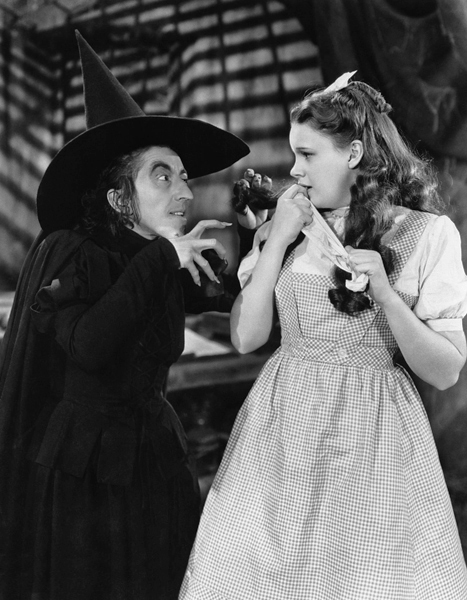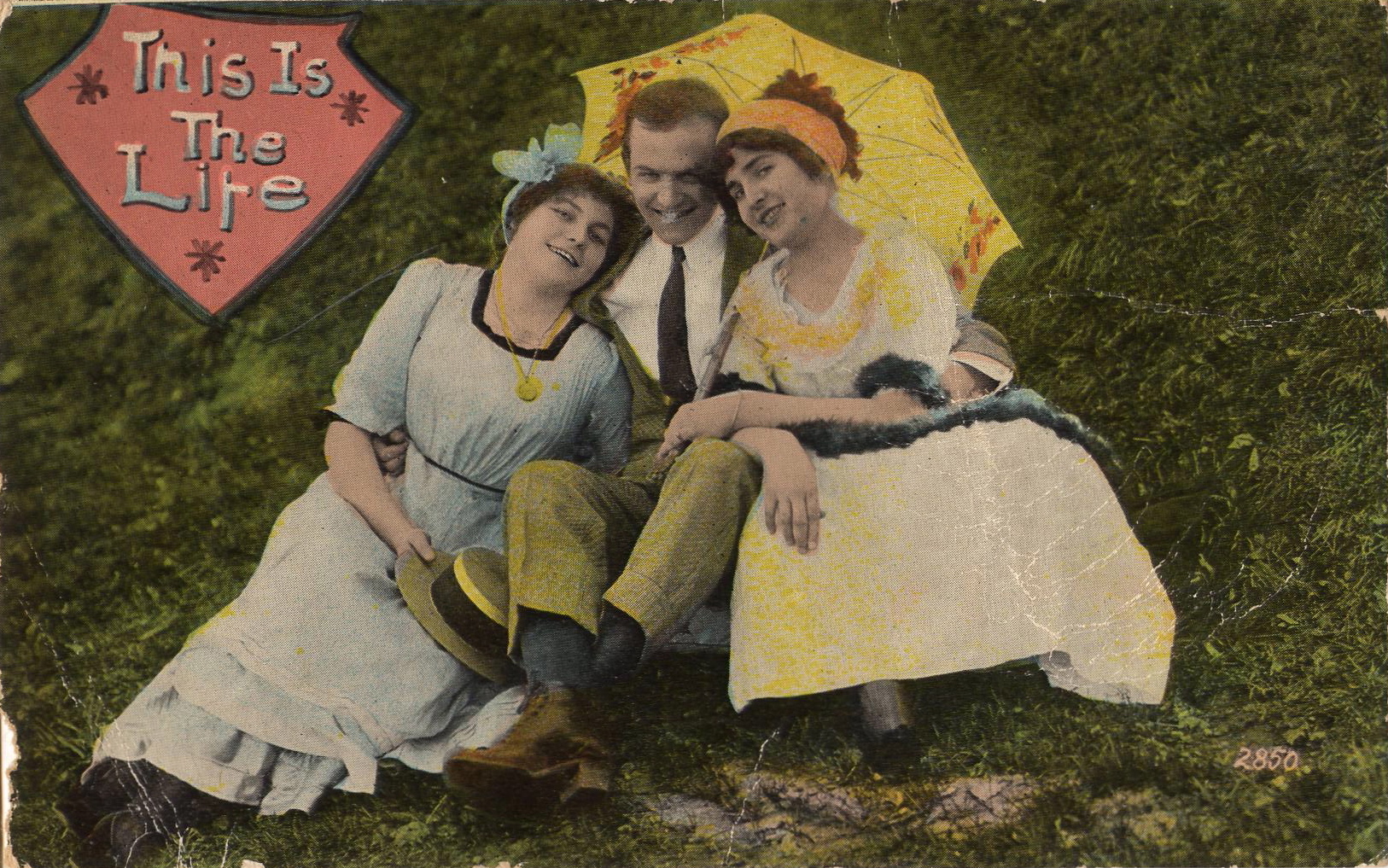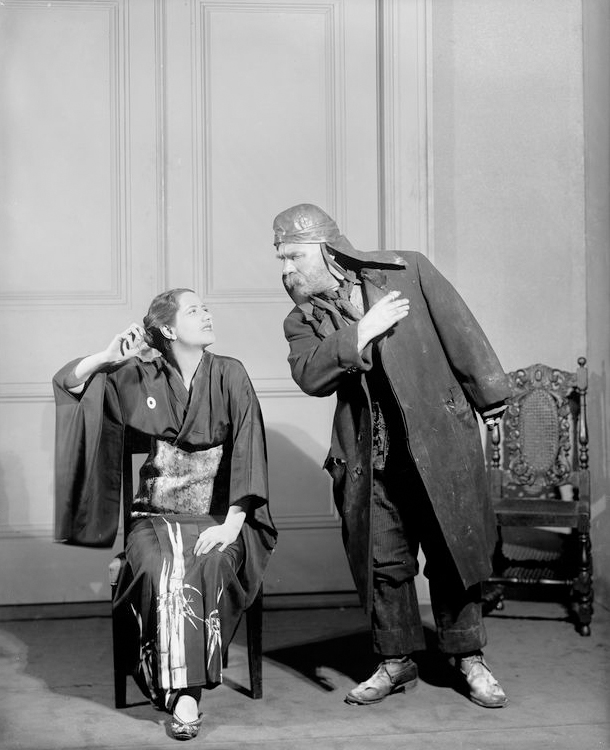|
Design For Living (film)
''Design for Living'' is a 1933 American pre-Code romantic comedy film directed by Ernst Lubitsch from a screenplay by Ben Hecht, based on the 1932 play of the same name by Noël Coward. Starring Fredric March, Gary Cooper, and Miriam Hopkins, the film is about a woman who cannot decide between two men who love her, and the trio agree to try living together in a platonic friendly relationship. Criticism was mixed, with some critics praising the film, but many were ambivalent about its great departure from Coward's play. Coward said, "I'm told that there are three of my original lines left in the film—such original ones as 'Pass the mustard'." The film was a box office success, ranking as one of the top ten highest-grossing films of 1933. All three of the lead actors—March, Cooper, and Hopkins—received attention from this film as they were all at the peak of their careers. Plot While en route to Paris via train, commercial artist Gilda Farrell meets artist George Curtis ... [...More Info...] [...Related Items...] OR: [Wikipedia] [Google] [Baidu] |
Ernst Lubitsch
Ernst Lubitsch (; ; January 29, 1892November 30, 1947) was a German-born American film director, producer, writer, and actor. His urbane comedies of manners gave him the reputation of being Hollywood's most elegant and sophisticated director; as his prestige grew, his films were promoted as having "the Lubitsch touch". Among his best known works are '' Trouble in Paradise'' (1932), '' Design for Living'' (1933), '' Ninotchka'' (1939), '' The Shop Around the Corner'' (1940), '' To Be or Not to Be'' (1942) and '' Heaven Can Wait'' (1943). He was nominated for the Academy Award for Best Director three times for '' The Patriot'' (1928), '' The Love Parade'' (1929), and ''Heaven Can Wait'' (1943); his pictures '' The Smiling Lieutenant'' and '' One Hour with You'' were also nominated for Outstanding Production in 1932. In 1946, he received an Honorary Academy Award for his distinguished contributions to the art of the motion picture. Early life Lubitsch was born in 1892 in Berlin, ... [...More Info...] [...Related Items...] OR: [Wikipedia] [Google] [Baidu] |
Isabel Jewell
Isabel Jewell (July 19, 1907 – April 5, 1972) was an American actress, who rose to prominence in the 1930s and early 1940s. Some of her more famous films were '' Ceiling Zero'', ''Marked Woman'', ''A Tale of Two Cities'', and ''Gone with the Wind''. Early life Born in Shoshoni, Wyoming on July 19, 1907, Jewell was the daughter of Emory Lee Jewell and Livia A. Willoughby Jewell. Her father was "a prominent...doctor and medical researcher." She was educated at St. Mary's Academy in Minnesota and at Hamilton College in Kentucky. Career After years in theatre stock companies, including an 87-week stint in Lincoln, Nebraska, she got a part on Broadway in ''Up Pops the Devil'' (1930). She received glowing critical reviews for ''Blessed Event'' (1932) as well. Jewell's film debut came in '' Blessed Event'' (1932). She had been brought to Hollywood by Warner Brothers for the film version of '' Up Pops the Devil''. Jewell gained other supporting roles, appearing in a variety of fi ... [...More Info...] [...Related Items...] OR: [Wikipedia] [Google] [Baidu] |
Character Actor
A character actor is an actor known for playing unusual, eccentric, or interesting character (arts), characters in supporting roles, rather than leading ones.28 April 2013, The New York Acting SchoolTen Best Character Actors of All Time Retrieved 7 August 2014, "..a breed of actor who has the ability to be almost unrecognizable from part to part, and yet play many, many roles convincingly and memorably. .." The term is somewhat abstract and open to interpretation. While all actors play "characters", the term character actor is often applied to an actor who frequently plays a distinctive and important supporting role. In another sense, a character actor may also be one who specializes in minor roles. A character actor may play a variety of characters in their career, often referred to as a "chameleon", or may be known for playing the same type of roles. Character actor roles are more substantial than bit parts or non-speaking Extra (acting), extras. The term is used primarily to ... [...More Info...] [...Related Items...] OR: [Wikipedia] [Google] [Baidu] |
Pneumonia
Pneumonia is an Inflammation, inflammatory condition of the lung primarily affecting the small air sacs known as Pulmonary alveolus, alveoli. Symptoms typically include some combination of Cough#Classification, productive or dry cough, chest pain, fever, and Shortness of breath, difficulty breathing. The severity of the condition is variable. Pneumonia is usually caused by infection with viruses or bacteria, and less commonly by other microorganisms. Identifying the responsible pathogen can be difficult. Diagnosis is often based on symptoms and physical examination. Chest X-rays, blood tests, and Microbiological culture, culture of the sputum may help confirm the diagnosis. The disease may be classified by where it was acquired, such as community- or hospital-acquired or healthcare-associated pneumonia. Risk factors for pneumonia include cystic fibrosis, chronic obstructive pulmonary disease (COPD), sickle cell disease, asthma, diabetes, heart failure, a history of smoking, ... [...More Info...] [...Related Items...] OR: [Wikipedia] [Google] [Baidu] |
Douglas Fairbanks, Jr
Douglas Elton Fairbanks Jr. (December 9, 1909 – May 7, 2000) was an American actor, producer, and decorated naval officer of World War II. He is best-known for starring in such films as '' The Prisoner of Zenda'' (1937), '' Gunga Din'' (1939), and '' The Corsican Brothers'' (1941). He was the son of Douglas Fairbanks and the stepson of Mary Pickford, and his first marriage was to actress Joan Crawford. Early life Douglas Elton Fairbanks Jr. was born in New York City in 1909. He was the only child of actor Douglas Fairbanks and Anna Beth Sully, the daughter of wealthy industrialist Daniel J. Sully. Fairbanks' father was one of cinema's first icons, noted for such swashbuckling adventure films as '' The Mark of Zorro'', ''Robin Hood'', and '' The Thief of Bagdad''. Fairbanks had small roles in his father's films '' American Aristocracy'' (1916) and ''The Three Musketeers'' (1921). His parents divorced when he was nine years old, and both remarried. He lived with his mother i ... [...More Info...] [...Related Items...] OR: [Wikipedia] [Google] [Baidu] |
Leslie Howard (actor)
Leslie Howard Steiner (3 April 18931 June 1943) was an English actor, director, producer and writer.Obituary, '' Variety'', 9 June 1943. He wrote many stories and articles for ''The New York Times'', ''The New Yorker'', and '' Vanity Fair'' and was one of the biggest box-office draws and movie idols of the 1930s. Active in both Britain and Hollywood, Howard played Ashley Wilkes in ''Gone with the Wind'' (1939). He had roles in many other films, including ''Berkeley Square'' (1933), '' Of Human Bondage'', '' The Scarlet Pimpernel'' (both 1934), '' The Petrified Forest'' (1936), '' Pygmalion'' (1938), '' Intermezzo'' (1939), '' "Pimpernel" Smith'' (1941), and ''The First of the Few'' (1942). He was nominated for the Academy Award for Best Actor for ''Berkeley Square'' and ''Pygmalion''. Howard's Second World War activities included acting and filmmaking. He helped to make anti-German propaganda and shore up support for the Allies; two years after his death, the ''British Film Ye ... [...More Info...] [...Related Items...] OR: [Wikipedia] [Google] [Baidu] |
Ronald Colman
Ronald Charles Colman (9 February 1891 – 19 May 1958) was an English-born actor who started his career in theatre and silent film in his native country, then emigrated to the United States where he had a highly successful Cinema of the United States, Hollywood film career. He starred in silent films and successfully transitioned to sound, aided by a distinctive, pleasing voice. He was most popular during the 1920s, 1930s and 1940s. He received Oscar nominations for ''Bulldog Drummond (1929 film), Bulldog Drummond'' (1929), ''Condemned (1929 film), Condemned'' (1929) and ''Random Harvest (film), Random Harvest'' (1942). Colman starred in several classic films, including ''A Tale of Two Cities (1935 film), A Tale of Two Cities'' (1935), ''Lost Horizon (1937 film), Lost Horizon'' (1937) and ''The Prisoner of Zenda (1937 film), The Prisoner of Zenda'' (1937). He also played the starring role in the Technicolor classic ''Kismet (1944 film), Kismet'' (1944), with Marlene Dietrich. In ... [...More Info...] [...Related Items...] OR: [Wikipedia] [Google] [Baidu] |
Great Depression
The Great Depression was a severe global economic downturn from 1929 to 1939. The period was characterized by high rates of unemployment and poverty, drastic reductions in industrial production and international trade, and widespread bank and business failures around the world. The economic contagion began in 1929 in the United States, the largest economy in the world, with the devastating Wall Street stock market crash of October 1929 often considered the beginning of the Depression. Among the countries with the most unemployed were the U.S., the United Kingdom, and Weimar Republic, Germany. The Depression was preceded by a period of industrial growth and social development known as the "Roaring Twenties". Much of the profit generated by the boom was invested in speculation, such as on the stock market, contributing to growing Wealth inequality in the United States, wealth inequality. Banks were subject to laissez-faire, minimal regulation, resulting in loose lending and wides ... [...More Info...] [...Related Items...] OR: [Wikipedia] [Google] [Baidu] |
Samson Raphaelson
Samson Raphaelson (March 30, 1894 – July 16, 1983) was an American playwright, screenwriter and fiction writer. While working as an advertising executive in New York, he wrote a short story based on the early life of Al Jolson, called ''The Day of Atonement'', which he then converted into a 1925 play, ''The Jazz Singer''. In 1927 this would become the first talking picture, with Jolson its star. He then worked as a screenwriter with Ernst Lubitsch on sophisticated comedies such as '' Trouble in Paradise,'' '' The Shop Around the Corner'', and '' Heaven Can Wait'' and with Alfred Hitchcock on '' Suspicion''. His short stories appeared in ''The Saturday Evening Post'' and other leading magazines, and he taught creative writing at the University of Illinois. Career on Broadway Raphaelson was born to a Jewish family in New York, the son of Anna (Marks) and Ralph Raphaelson. After graduating from the University of Illinois, he lived for varying periods in Chicago, San Francisco, an ... [...More Info...] [...Related Items...] OR: [Wikipedia] [Google] [Baidu] |
Ménage à Trois
A () is a domestic arrangement or committed relationship consisting of three people in polyamorous romantic or sexual relations with each other, and often dwelling together. The phrase is a loan from French meaning "household of three". Contemporary arrangements are sometimes identified as a throuple, thruple, or triad. Terminology This relationship type usually has elements of bisexuality involved, but occasionally at least one of the participants is heterosexual, homosexual or asexual. Because this term is sometimes interchangeably used for a threesome, which solely refers to a sexual experience involving three people, it can sometimes be misrepresented as some type of casual encounter. However, the ''ménage à trois'' is a specific type of committed relationship, in which vows are often made. It does not apply to all polyamorous relationships with three individuals, since polyamory can have many different forms. The topic sometimes overlaps seemingly opposing c ... [...More Info...] [...Related Items...] OR: [Wikipedia] [Google] [Baidu] |
Alfred Lunt
Alfred David Lunt (August 12, 1892 – August 3, 1977) was an American actor and director, best known for his long stage partnership with his wife, Lynn Fontanne, from the 1920s to 1960, co-starring in Broadway theatre, Broadway and West End theatre, West End productions. After their marriage, they nearly always appeared together. They became known as "the Lunts" and were celebrated on both sides of the Atlantic. Although they appeared in classics including ''The Taming of the Shrew'', ''The Seagull'' and ''Pygmalion (play), Pygmalion'', and dark comedy by Friedrich Dürrenmatt, The Lunts were best known for their stylish performances in light comedies by Noël Coward, S. N. Behrman, Terence Rattigan and others, and romantic plays by writers such as Robert E. Sherwood. Lunt directed some of the couple's productions, and staged plays for other managements. Though they rarely acted for the camera, The Lunts each received an Emmy Award and were nominated for an Academy Award. The Lu ... [...More Info...] [...Related Items...] OR: [Wikipedia] [Google] [Baidu] |
Lynn Fontanne
Lynn Fontanne (; 6 December 1887 – 30 July 1983) was an English actress. After early success in supporting roles in the West End theatre, West End, she met the American actor Alfred Lunt, whom she married in 1922 and with whom she co-starred in Broadway theatre, Broadway and West End productions over the next four decades. They became known as "The Lunts", and were celebrated on both sides of the Atlantic. Fontanne was born in what is now the London suburb of Woodford, London, Woodford, and received her first training as an actress from Ellen Terry. After building up an acting career in Britain she worked extensively in the US, first appearing in New York in 1910. Although she appeared in classics including ''The Taming of the Shrew'' and ''The Seagull'', experimental drama by Eugene O'Neill, and dark comedy by Friedrich Dürrenmatt, Fontanne and her husband were best known for their stylish performances in light comedies by Noël Coward, S. N. Behrman, Terence Rattigan and oth ... [...More Info...] [...Related Items...] OR: [Wikipedia] [Google] [Baidu] |










